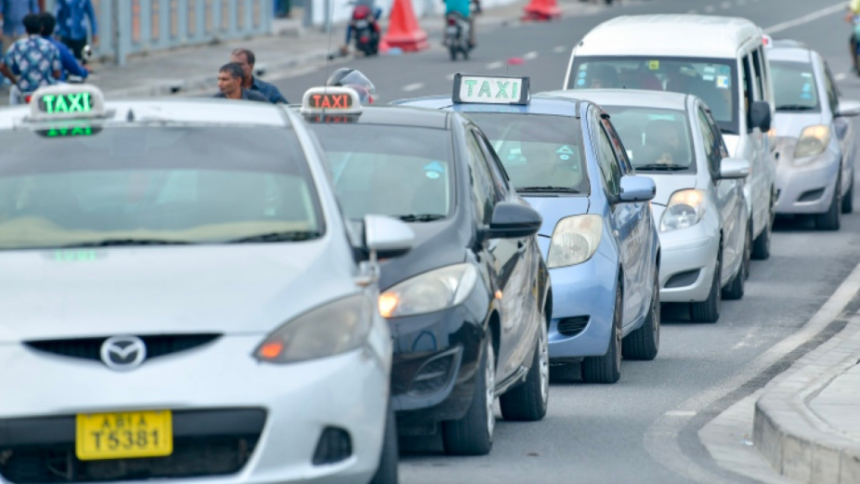The Maldivian government has announced plans to officially roll out a long-awaited taxi line service this July, as part of efforts to bring order, accessibility, and efficiency to the capital’s transport system.
Speaking on state media, Minister of Transport and Civil Aviation Mohamed Ameen confirmed that the government has finalized a service provider for the project and is now in the final stages of preparing for the launch. The Ministry is also in the process of developing a dedicated mobile application for the taxi line and establishing electric charging stations, which will support the operational fleet.
The new government-backed taxi service is being introduced in response to mounting public frustration over the lack of available taxis, particularly in the Malé area. Social media has been flooded in recent weeks with complaints from residents struggling to hail taxis, especially during peak hours. The planned taxi line is expected to alleviate this issue by offering a more organized and reliable transport option.
Minister Ameen emphasized the urgent need for reform within the current taxi system, citing the absence of proper regulations and service standards. He noted that the introduction of the official taxi line will allow the government to regulate pricing, service quality, and fleet maintenance—ultimately improving the overall experience for passengers.
One of the key features of the new service is its cost-saving structure for drivers. Unlike the current model, where many drivers operate rented vehicles and bear high maintenance expenses, those who join the government’s taxi line will be relieved of these financial burdens. Vehicles under the service will be maintained by the government or the appointed provider.
Addressing concerns from existing taxi drivers, Minister Ameen assured that the introduction of the new service will not disrupt their operations. Instead, he explained, the aim is to bring uniformity and fairness to the sector, while providing commuters with better access to transport.
The government views this initiative as part of a broader strategy to modernize public transport and reduce urban congestion, while also incorporating more sustainable infrastructure through electric charging stations.
With public anticipation high, the government hopes the official taxi line will be a turning point in the capital’s urban mobility challenges.




